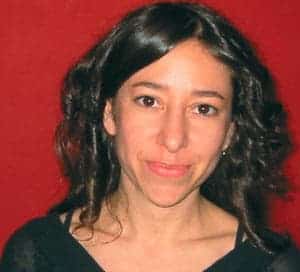Janna Levin is a professor of physics and astronomy at Barnard College of Columbia University in the US. She wrote How the Universe Got Its Spots: Diary of a Finite Time in a Finite Space, a popular-science account of her life and research in cosmology

What are the three best popular-science books?
I daren’t compile such a list because more than three of my friends have written popular-science books! But I can suggest a few classics. Primo Levi’s The Periodic Table is lovely, original, personal and moving; Oliver Sacks’ The Man Who Mistook His Wife for a Hat is fascinating and so well written; Heinz Pagels’ The Cosmic Code was one of the first and finest cosmology books; and even Desmond Morris’s The Naked Ape deserves mention, although it makes my list longer than three. It is amusing and appropriate to deflate our sense of importance and view ourselves as a zoologist might, even if some of the thinking on the subject has changed in the intervening years.
What science books are you currently reading?
This may seem odd, but I’m not reading any. I’ve been reading lots of fiction, even some fiction based on scientific themes, and I am starting to read a technical science book: A First Course in String Theory by Barton Zwiebach.
What else are you reading?
I’m re-reading Kazuo Ishiguro’s novel Never Let Me Go – a beautiful book.
Which popular-science book have you never read, but feel you ought to have tackled, and why?
I’d like to read Steven Pinker’s The Language Instinct. Books outside my own specialty appeal to me and the subject is remarkable.
What advice can you offer physicists who want to write a popular-science book?
Pretty simple advice: never talk down to your audience, write about what you love and write for yourself.



